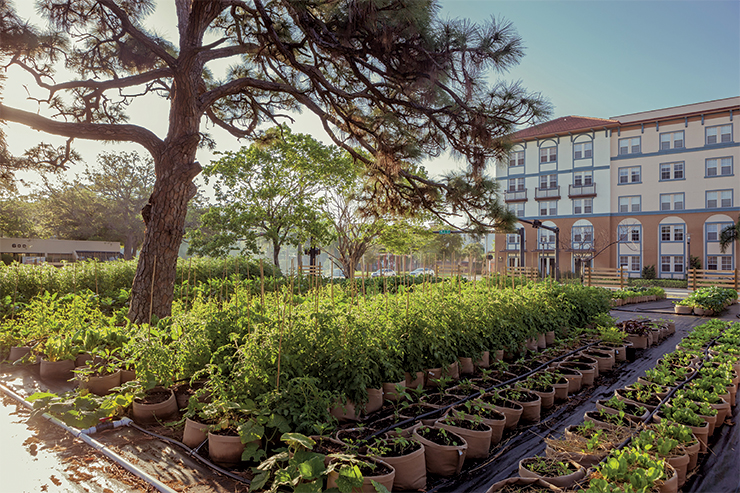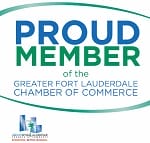By Nila Do Simon
Photography by Gary James
Why start an urban farm in downtown Fort Lauderdale?
As social entrepreneurs, our greatest asset is the community of people who will associate with our effort. Flagler Village is the densest part of downtown Fort Lauderdale with a year-round residential population that can walk to our farm. We want to produce food without transportation and storage, which can usually be 98 percent of food costs. We need to create it where the people are, so we can crop and distribute it that same day.
You both have agriculture careers, so why unite to create Flagler Village Farm?
Having worked on a variety of similar projects and constantly crossing paths while going after new work and adventures, we started proposing projects as joint ventures, combining our talents to offer more value. After realizing we had similar goals and philosophies, it seemed a perfect match.
What makes buying produce at Flagler Village Farm different from the local grocery store’s organic section?
The food is fresher and healthier. You’re supporting a small local business that will service other neighboring businesses in the food industry. We also have provided produce to 11 Street Annex, Market 17, Myapapaya, 3030 Ocean and Hardy Park Bistro.

HOMEGROWN HEREOS: Michael Madfis and Miguel Afonso want to share how important urban farming can be to the Fort Lauderdale community.
How can local customers purchase produce at Flagler Village Farm?
One way to make your purchase is through our community supported agriculture (CSA) membership, where one signs up for a weekly package of food for a minimum of eight weeks each season. The second way is to come to our farm stand, open Saturday mornings from 9 a.m. to noon, and Wednesday afternoons from 4 to 7 p.m. Typical products include carrots, cantaloupes, tomatoes, cucumbers, eggplants, spinach and watermelons.
What greater purpose can urban farming contribute to local economy?
We can help displace blight and crime on vacant land and create jobs through vocational training in sustainable urban agriculture. We also provide fresh food for local charities, such as The Pantry of Broward, and church food ministries. We can become a teaching venue for local culinary schools and a place to hold social events like fund-raisers, celebrity chef dinners and cooking demonstrations.
What do you hope the average customer takes away from your philosophy?
We hope they realize the authenticity of what we are doing. We are naturally growing food out in the open and cropping it the day it’s sold. We feel the farmer should be an important member of the community.
Originally appeared in the Spring 2014 issue.




